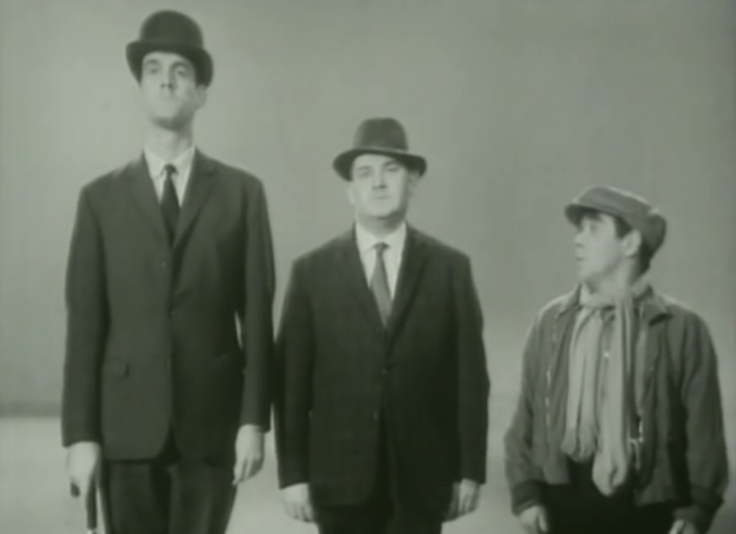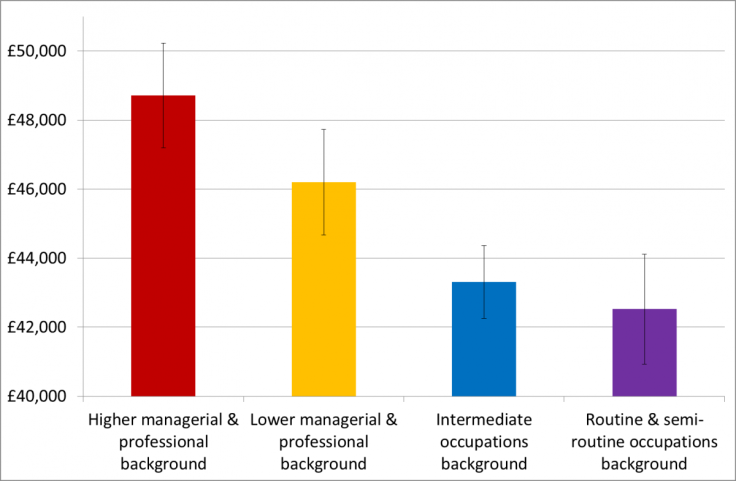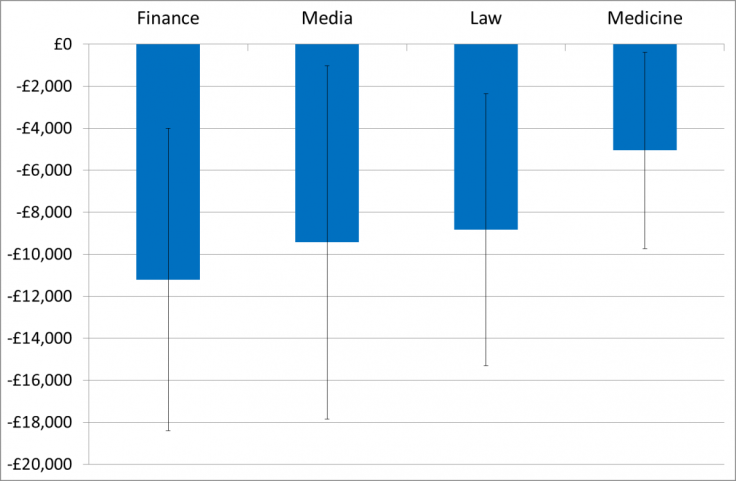The Class Ceiling: The working class can get elite jobs — but they will never be boss

According to Alan Milburn – the Chair of Social Mobility and Child Poverty Commission – one of the most pressing policy priorities of the next parliament is "opening up the top of British society". Britain, he argued in a major report in February, "remains – at heart – elitist".
These sentiments are shared by all the main political parties, it seems. Nick Clegg, Ed Miliband and David Cameron have all made impassioned speeches on the topic. As Clegg proclaimed in 2012, "We must create a more dynamic society. One where what matters most is the person you become, not the person you were born".
The main issue that has emerged from this political posturing is the problem of 'fair access'. There has long been a perception that Britain's traditionally high-status occupations, such as law, medicine, and journalism, remain stubbornly elitist and research has continually shown that these occupations recruit disproportionately from the socially privileged and/or the privately educated.
Yet there is a danger of reducing social mobility to this one-dimensional issue of access. In particular it assumes that social mobility finishes at the point of occupational entry. But the reality is that while many working-class people may secure admission into elite occupations, they don't necessarily go on to achieve the same levels of success as those from more privileged backgrounds. In a recent project, we have been investigating exactly this issue of social mobility within elite occupations.
The reality is that while many working-class people may secure admission into elite occupations, they don't necessarily go on to achieve the same levels of success as those from more privileged backgrounds
In doing so, we have purposively borrowed the 'glass ceiling' concept developed by feminist scholars to explain the hidden barriers faced by women in the workplace. In a working paper recently published by LSE Sociology, we argue that it is also possible to identify a 'class ceiling' in Britain, which is preventing the upwardly mobile from enjoying equivalent earnings to those from upper middle-class backgrounds.
Our analysis examines data from the 2014 Labour Force Survey, Britain's largest employment survey with a sample of 95,950. Here we analyse respondents in the 63 occupations that make up Class 1 of the Government's National Statistics Socio-Economic Classification (NS-SEC) – defined as Britain's elite. We then look at the class origins of those in these occupations, and most importantly how their income varies according to their class background (using NS-SEC classes 1-7).
Our results are very striking. They show that those in elite occupations whose parents were employed in semi-routine and routine working-class jobs ('long-range upwardly mobile') earn on average £6,200 a year less than their colleagues from higher professional and managerial backgrounds ('intergenerationally stable') – even after controlling for a host of factors known to affect earnings such as human capital (educational qualifications, job tenure, and training), the 'London effect', ethnicity, gender, age, hours worked, firm size and whether a person works in the public or private sector.

This pay gap, we argue, points to a worrying and previously undetected 'class ceiling' within Britain's elite occupations. But we didn't want to stop there. The exciting thing about the LFS data is that we are also able to explore in detail various sub-groups. This reveals telling variations in the nature of the class pay gap. We show, for example, that the pay gap is more consistent and larger among professionals than among managers; that upwardly mobile women face a 'double disadvantage' when compared to stable men, and that the size of the pay gap is larger for older generations.
We are also able to look at individual elite occupations, where we find striking variations. At one end of the scale, engineering provides a notable exemplar of meritocracy, with negligible differences in pay regardless of social background. In contrast, our results reveal the arresting scale of disadvantage experienced by the children of the working classes in law, media, medicine and finance.
The socially mobile (of any range) in finance have predicted earnings of £11,200 less per year than otherwise similar privileged colleagues, in media £9,440, law £8,830 and in medicine £5,050. This disadvantage also tends to increase the longer the range of mobility. In law, for example, the long-range upwardly mobile face a huge estimated annual pay gap of £19,700.

These are damning figures and point towards occupationally specific barriers that need urgent attention. But how might we explain this class ceiling? Well, this is exactly what we will be investigating over the next year or so. Specifically, we will conduct four in-depth case studies, carrying out 120 interviews with socially mobile and immobile barristers, actors, bankers and national journalists.
We hope this qualitative enquiry will help us understand the practices of the upwardly mobile – whether they choose less prestigious companies, less lucrative specialisms, and whether they are more reluctant to ask for pay rises. We will also look at the experience of upward mobility and whether these people actually feel disadvantaged. Finally, it will allow us to see whether the mobile are treated differently by others in elite occupations, in particular whether they are unconsciously given fewer rewards because cultural and social markers of their class background mark them out as different.
We are not suggesting here that the class pay gap is new. In fact, we are sceptical that this is the case. What we can say, though, is that we think this analysis highlights the need for new directions in social policy that move beyond the political rhetoric of 'fair access'.
Despite what Nick Clegg says, there is no such easy distinction between "the person you were born" and "the person you become". As our results show, individuals tend to always carry – at least in some shape or form – the symbolic baggage of the past. Moreover, the imprint of this history can have important consequences for both how people act in the present, and – perhaps more importantly – how they are evaluated by others.
If we really want to address elitism in this country we must be willing to look beyond access to what goes on within occupations, and take very seriously the existence of not just the glass, but also the class ceiling.
Sam Friedman is Assistant Professor in Sociology at LSE. He tweets from @SamFriedmanSoc.
Daniel Laurison is as a Post-Doctoral Fellow in the Sociology Department at the LSE.
The article was originally published on LSE Blogs
© Copyright IBTimes 2025. All rights reserved.



















